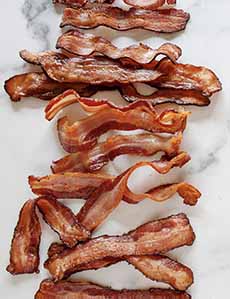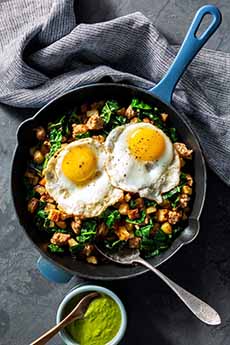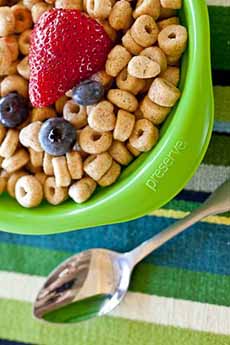America’s Favorite Breakfast Foods For The Big Breakfast Day
|
If your breakfast is a cup of coffee and a bagel or doughnut, that does not count for The Big Breakfast Day, February 27th. There are better breakfast foods to be had for this most important meal of the day. Why is breakfast the most vital meal of the day? Physicians and nutritionists recommend that consuming a substantial, nutritious breakfast determines how energized and alert you are to start the day. It will also help you feel full until lunch—no growling stomach. > 115 breakfast holidays (yes indeed!). According to Days Of The Year, The Big Breakfast Day was invented in 2020 by a man named Jeffrey Arnold. But we can’t find any more information about him or why he picked February 27th for the holiday. If you know anything else, please let us know (write to editors at TheNibble.com). Days Of The Year opines that the holiday “offers an opportunity to slow down a bit and enjoy more than just a quick cup of coffee on the run.” Another goal: to encourage a healthy start to the day. The USDA recommends that a “balanced breakfast” should be one that is nutrient dense (that is, high in nutrients and low in calories). A balanced breakfast should be a mix of: Too much fat and salt! See more about it below. On another note: Can you have a Bloody Mary, Mimosa, or Screwdriver with your breakfast? Sure: It’s a holiday. But just one. Given all this nutritional advice, what are America’s favorite breakfast foods? Per Yahoo Finance, An online survey commissioned by General Mills, Inc. (NYSE:GIS) Foodservice in 2021 revealed the affection Americans have for breakfast.
Bacon, sausage, and other processed meats should only be consumed in moderation. Why? Saturated Fats: They are high in saturated fats, which, when consumed in excess, have been linked to elevated levels of LDL cholesterol (the “bad” cholesterol), which can contribute to an increased risk of cardiovascular diseases. Processed Meat Risks: Regular consumption of processed meats has been associated with an increased risk of certain health issues, including heart disease and certain types of cancer. High in Sodium: Bacon is typically cured with salt, making it a high-sodium food. Excessive sodium intake can contribute to high blood pressure and increase the risk of cardiovascular problems. Calorie Density: Bacon is calorie-dense, meaning it provides a significant number of calories in a small serving size. For those watching their calorie intake, this can be a concern. Nitrate and Nitrite Content: Bacon typically contains nitrate and nitrite preservatives, which can form potentially harmful compounds when cooked at high temperatures. While the evidence is not conclusive, some studies suggest a link between processed meat consumption and certain health risks. It’s worth noting that moderation is key, and enjoying bacon occasionally as part of a balanced diet may not be problematic for everyone. However, for those with specific health concerns, such as cardiovascular issues or high blood pressure, it’s advisable to limit the intake of high-saturated-fat and processed meats and other high-saturated-fat foods. These include: CHECK OUT WHAT’S HAPPENING ON OUR HOME PAGE, THENIBBLE.COM. |
|
|
|
|
||







